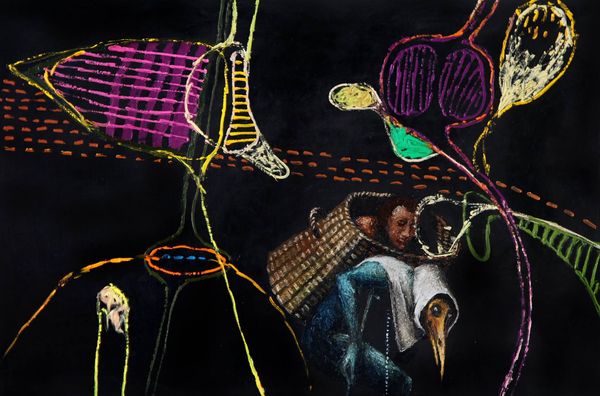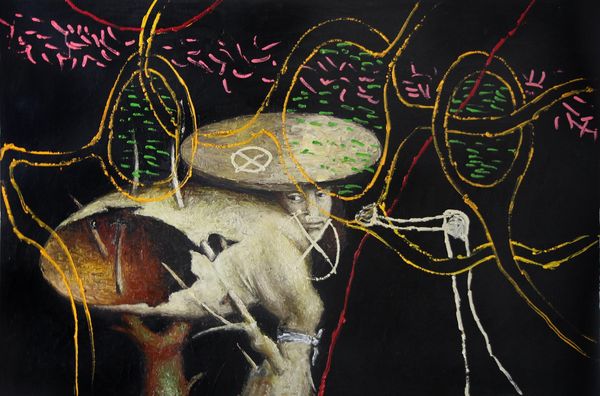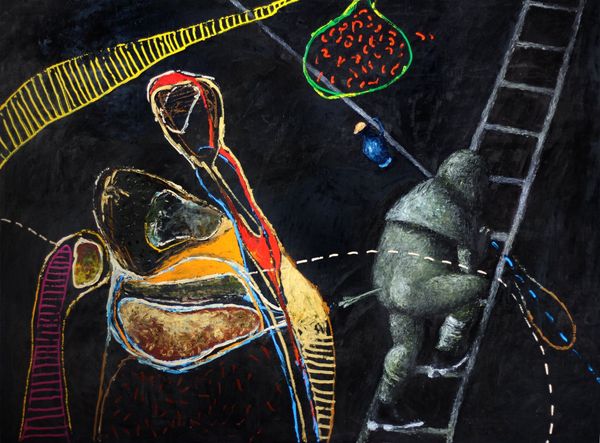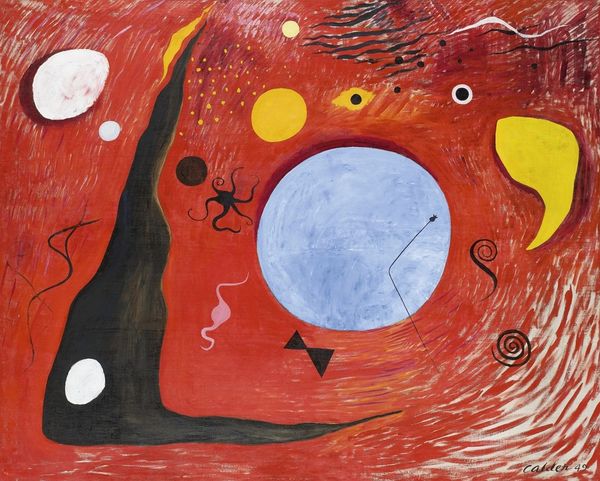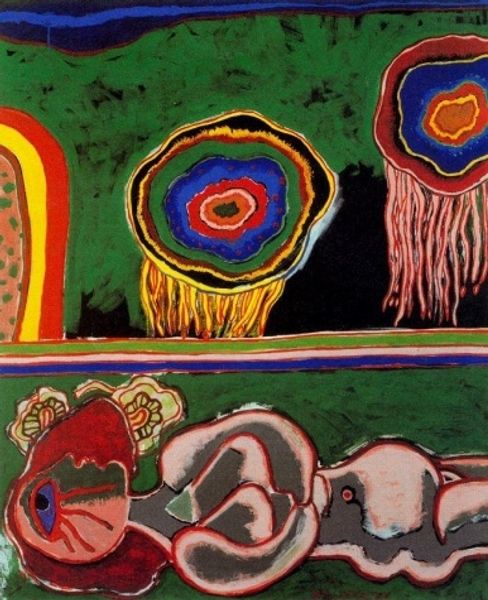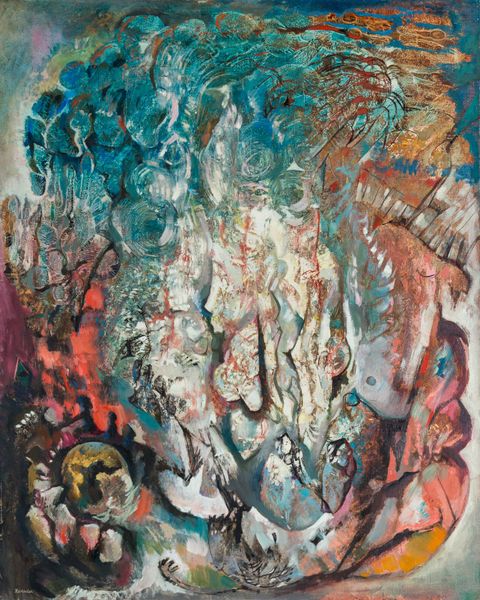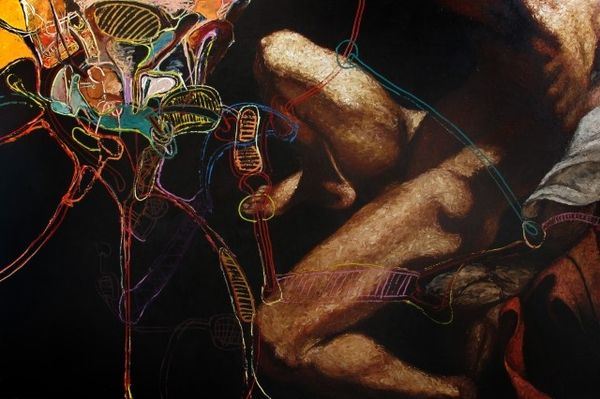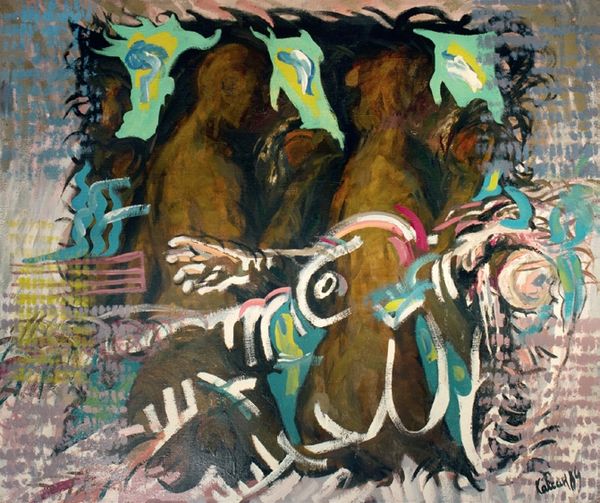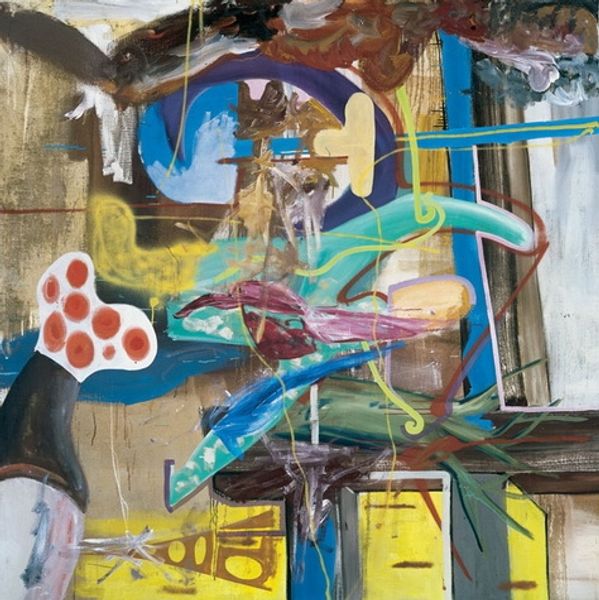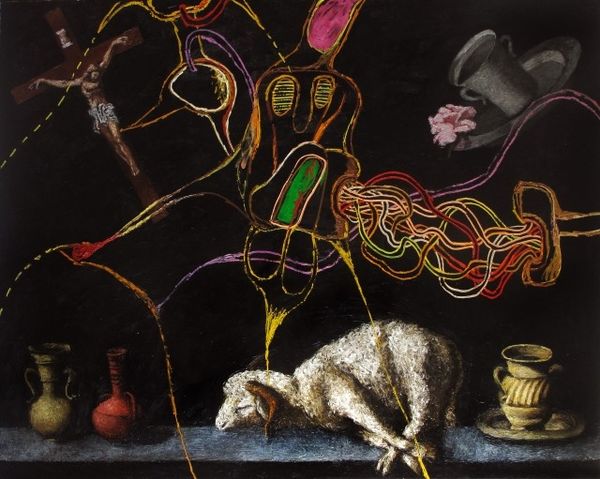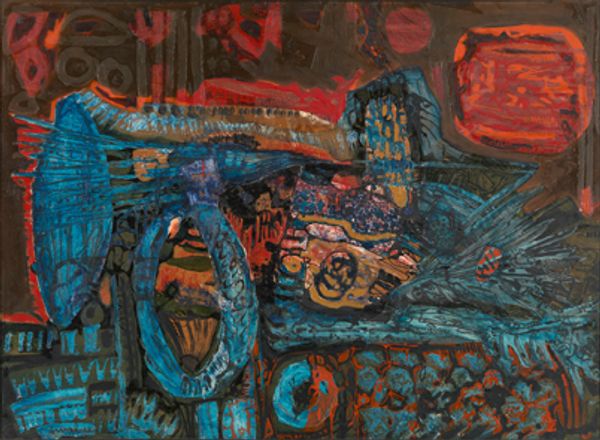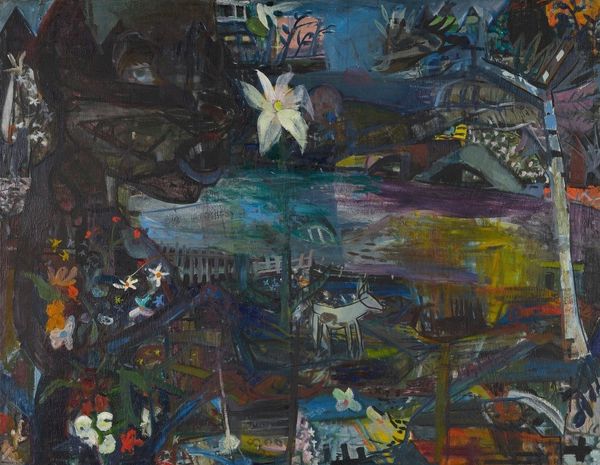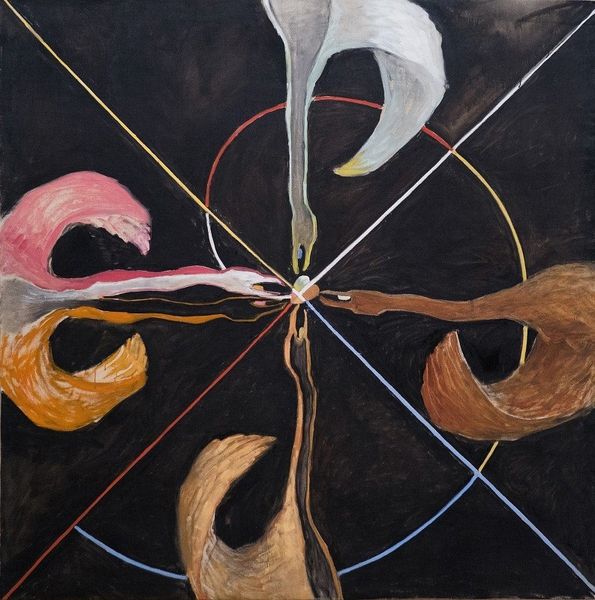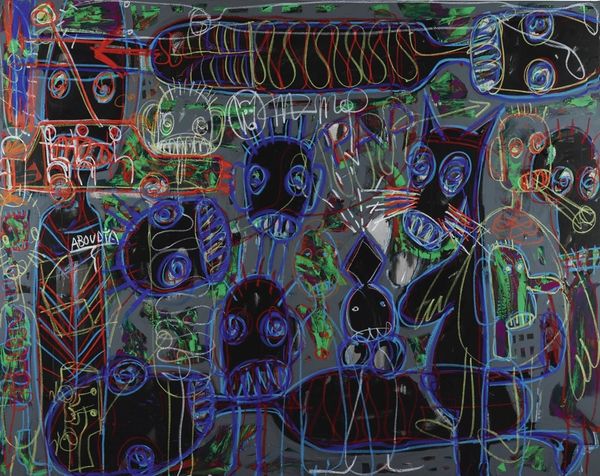
Copyright: Alexander Roitburd,Fair Use
Curator: Alexander Roitburd's painting from 2016, titled "The Garden of Earthly Pleasures, Opus # 9", uses oil on canvas to create quite a fantastical scene. Editor: My initial impression is one of a dreamscape, maybe even a nightmare. There's a sense of unease, amplified by the heavy reliance on black and the unsettling imagery. Curator: Indeed. The composition presents a dynamic interplay between figuration and abstraction, hallmarks of expressionism. Observe how Roitburd disrupts traditional perspective. Forms overlap, and spatial relationships become ambiguous. It challenges our reading of the canvas, doesn't it? Editor: Absolutely. And it's filled with iconography that’s immediately compelling. Take, for example, the bestial creatures – the half-human, half-animal forms evoke a sense of primal energy and perhaps repressed desires, calling on very old iconographies related to myths. Curator: A fascinating observation. Structurally, Roitburd employs a kind of visual layering. Look closely at the interplay between line, shape, and texture. Notice the way the gold lines interact with other figurative elements. How would you decode the significance of such an array of graphic material? Editor: Perhaps they suggest an underlying interconnectedness? A symbolic structure or even dream logic relating back to this earthly pleasure… or perhaps the pursuit of pleasure. The ladder on the right leads up into what is also a womb-like shape – one may see this work through lenses offered by psychoanalysis? Curator: Intriguing! It is worth adding that the expressionistic treatment of form contributes to the artwork's overall sense of urgency and emotion. The rawness seems to suggest not a mere depiction of symbols, but a manifestation of subconscious turmoil, perhaps. Editor: And it resonates, that rawness. Roitburd is tapping into something ancient and universal. I'm thinking this would make Carl Jung himself very happy to reflect upon this work, thinking about collective cultural narratives expressed across time. Curator: Agreed. It demonstrates Roitburd’s command of neo-expressionist aesthetics, pushing conventional modes of representation towards greater expressiveness. Editor: Exactly. In its density of imagery and emotional intensity, "The Garden of Earthly Pleasures, Opus # 9" functions as a compelling statement about humanity's complex relationship with both the sublime and the disturbing forces within.
Comments
No comments
Be the first to comment and join the conversation on the ultimate creative platform.
